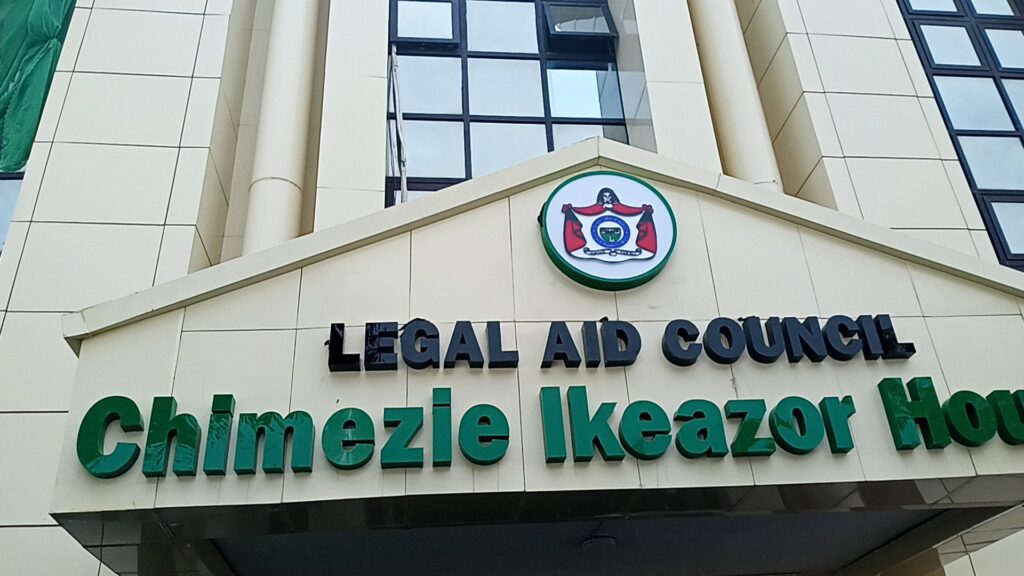The importance of legal aid in contemporary Nigerian society despite the operational challenges.
In contemporary Nigerian society, legal aid is a cornerstone of justice, ensuring that even the most vulnerable individuals have access to legal representation and assistance.
The idea or philosophy behind legal aid is that the right to a fair trial and justice should not depend on how much money a person has, or connections.
Thus, the right of access to court and justice should not depend on how much money a person has to prosecute his claim or make his defence.
Equal access to court and justice must be available in civil and criminal proceedings for peace, harmony and happiness in the society.

OPUTA JSC in Josiah V State put it thus:
“What is hearing worth to an accused person who does not understand the language of the court, who does not know the rules of procedure, and who cannot properly present his case? The right to counsel is thus at the very root of, and is a necessary foundation for a fair hearing. The ordinary layman, even the intelligent and educated layman is not skilled in the science of law and he therefore needs the aid and advice of counsel.”
Without legal representation, a party cannot properly present his case.
As LORD ALFRED DENNING MR put it:
“The truth is best discovered by powerful statements on both sides.”
Therefore equal access to justice to everyone cannot be over-emphasized.
Emphatically, the 1999 Constitution of the Federal Republic of Nigeria, makes provision for legal aid, it addresses fundamental rights and ensures equality before the law.
Accordingly, section 36(6) paragraphs (b) and (C) respectively provide that every person who is charged with a criminal offense shall be entitled as follows:
- Be given adequate time and facilities for the preparation of his defence; and
- Defend himself in person or by legal practitioners of his own choice.
Furthermore, and very importantly, section 46 (4) (b) (I) and (II) provide as follows:
“The National Assembly shall make provisions for the rendering of financial assistance to any indigent citizen of Nigeria where his right under this chapter has been infringed to enable him to engage the services of a legal practitioner to prosecute his claim, and to ensure that allegations of infringement of such rights are substantial and the requirements or need for financial or legal aid is real.”
Therefore, Legal aid plays a pivotal role in upholding the rule of law and fostering societal cohesion.
By providing legal assistance and representation to indigent individuals, legal aid ensures that all citizens, irrespective of their financial status, can exercise their rights and seek redress for grievances.
This promotes fairness in the legal system and safeguards against discrimination.
Moreover, legal aid empowers marginalized communities and enhances access to justice, thereby reducing inequalities and reinforcing democratic principles.
Despite its importance in contemporary Nigerian society, legal aid encounters various operational challenges that impede its effectiveness such as:
- Inadequate Funding
- Inadequate facilities to carry out its services
- Inadequate Personnel
- Little or no participation by prominent and more experienced legal practitioners.
- Additionally, limited awareness about the availability of legal aid further restricts its utilization, perpetuating disparities in access to justice.
Despite these challenges, the need for legal aid has not been overshadowed because it’s a social, economic, and political necessity for the emancipation, welfare, and advancement of society.
Justice is necessary for peace in society, and society needs peace to develop.
The identification of this need led to the establishment of the Legal Aid Council by the Federal Government of Nigeria in 1976, as an official or public legal aid scheme to provide legal assistance to indigent persons in need of legal assistance.
In conclusion, while the importance of legal aid in contemporary Nigerian society cannot be over-emphasized, it is essential to acknowledge and address the operational challenges it faces as listed above.
Efforts should be made to increase funding for legal aid institutions, streamline bureaucratic processes, and raise awareness about the availability of legal aid services.
There should be adequate personnel and experienced legal practitioners.
By doing so, Nigeria can ensure that legal aid fulfils its vital role in promoting justice, equality, and the rule of law for all its citizens

